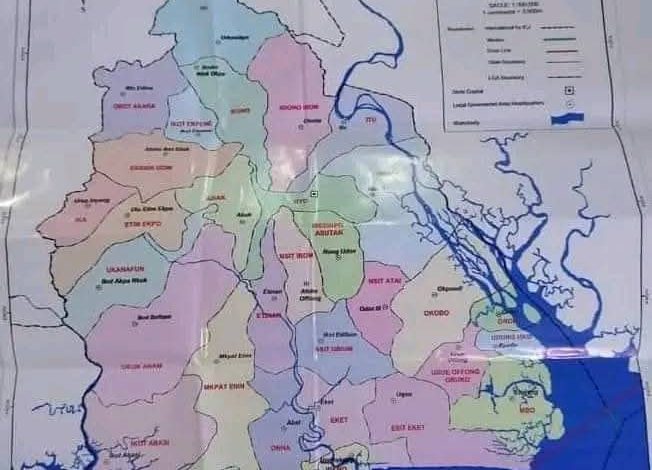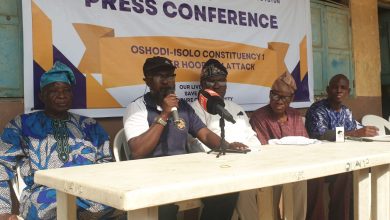
Stakeholders of the Ekid nation of Akwa Ibom State have described the Akwa Ibom State government’s proposed committee on Stubb Creeks Forest as an unnecessary, spurious and suspicious composition.
The stakeholders relied on the numerous court judgements spanning over a century and the Statutes of the Legislature which the Government has refused to implement.
The stakeholders’ position which was made public after a marathon meeting at the Atan Palace of the Paramount Ruler of Eket, insisted that they have not found any legitimate basis for setting up a new Committee to review the Court judgments, including those of the Privy Council in London of 1916 -1918.
They added, “We have not found any explicable reason to review the Statutes of the Legislature on this matter. The Stakeholders believe that the proposed Committee is an avenue to surreptitiously cover the illegal land deals in the Stubbs Creek and possibly request more land concessions to the Ibeno people.
“We want to make it abundantly clear that the Ekid people will not make any more concessions to Ibeno in the Stubbs Creek Forest, as we have already conceded so much since their arrival on the Qua Iboe River estuary,” they highlighted.
Stakeholders of Ekid revealed that historical records show that when the Ibeno people arrived at the Qua Iboe River estuary in the 18th century, the land was already occupied by the Ekid and other Ibibio groups, who are the original inhabitants of the area.
They intoned, “The Ibeno, therefore, made no claims to ownership of any piece of land in the area and had no reason to do so. Instead, they pleaded with the Ekid leaders to give them land to settle on the seashore to continue their fishing business. It was based on that appeal that they were allowed to settle by the seashore.
“In 1945, the Colonial Administrators wanted to build a dispensary and a Native Court for them, as their population was growing. Again, another request was made to the neighbouring Esit Urua village in Eket to give them land to build the structures, with a provision that they share the facilities with them. The dispensary and the Native Court became the boundary and the upper limit of Ibeno territory up till the year 2001”.
The Ekid Stakeholders further explained, “When Ibeno Local Government was created in 1996, it had no clearly defined territory of its own. Faced with this challenge, the new leadership moved into the adjoining Esit Urua palm plantation and began clearing it to build their secretariat. This sparked conflict, and the Eket community went to court, where they obtained an injunction to stop the encroachment. It was not until 2001, under the administration of Obong Victor Attah, that the state government intervened and struck a concession, granting the Ibeno space on the right side of the Eket–Qua Iboe Terminal Road. With that intervention, Ibeno was finally able to secure land to construct its secretariat and a general hospital. Over time, portions of the land were parcelled out to influential Ibeno elites, while the remaining plots were sold to willing buyers”.
They maintained that by 2008, Ibeno people had exhausted all the land on the right that was concessioned to them and encroached on the left side when every local government council was asked to build a security village during Obong Godswill Akpabio’s administration.
“They crossed to the left, cleared the land at the junction of Edor/ Upenekang Road to build. The Ekid people, of course, raised objections against the illegal incursion. The Government immediately ordered them to return to the side of the road allocated to them. That is why the security village is located at the entrance to Upenekang.
The Ekid nation stakeholders made it clear that after all these concessions and attempts to forcefully encroach, they are no longer desirous of shifting grounds for the Ibeno people, as their ultimate desire has always been to take the entire Stubbs Creek forest, which historically and legally belongs to Ekid.
Speaking on their position on the raging issue, stakeholders of Ekid made it clear that they cannot support Governor Umo Eno’s Committee on the Stubbs Creek.
They cited a similar national dispute after the International Court of Justice ceded the Bakassi Peninsula to Cameroon and rendered Cross River State landlocked, “the Cross River State Government began agitating for the return of 77 oil wells belonging to Akwa Ibom. In pursuit of this, Cross River dragged Akwa Ibom to the Supreme Court, but lost in a landmark judgment.
“Today, even as Cross River renews its claims on those oil wells, settled conclusively by the apex court, no one would expect the Akwa Ibom State Government to welcome a Federal Government committee to renegotiate the ownership of the oil wells,” the stakeholders explained.
The Ekid stakeholders made it clear that for the same reason, the Ekid people cannot embrace the Governor’s Committee on Stubbs Creek Forest.
“We will continue to stand by the existing court judgments affirming their ownership of the forest and its appurtenances. The Ekid people will firmly resist any attempt at the further balkanisation of the Forest, whether for the benefit of Ibeno or any other vested interest.
“The Government should implement its decision to demolish all illegal structures and set the forest free for coordinated development in conjunction with the legitimate land owners. Akwa Ibom State Government should do the right thing and stop setting up another Committee,” they concluded.




